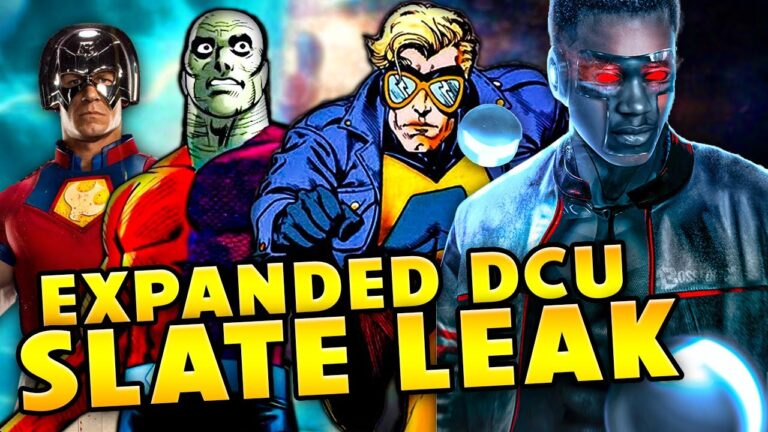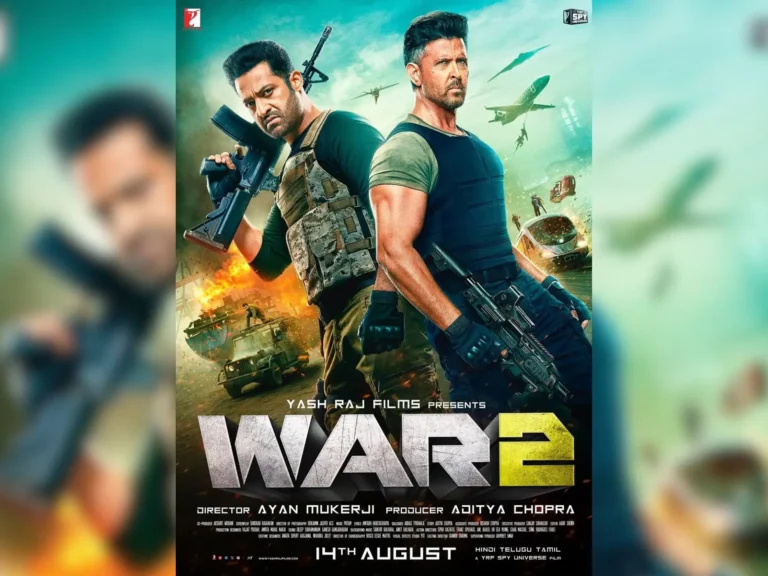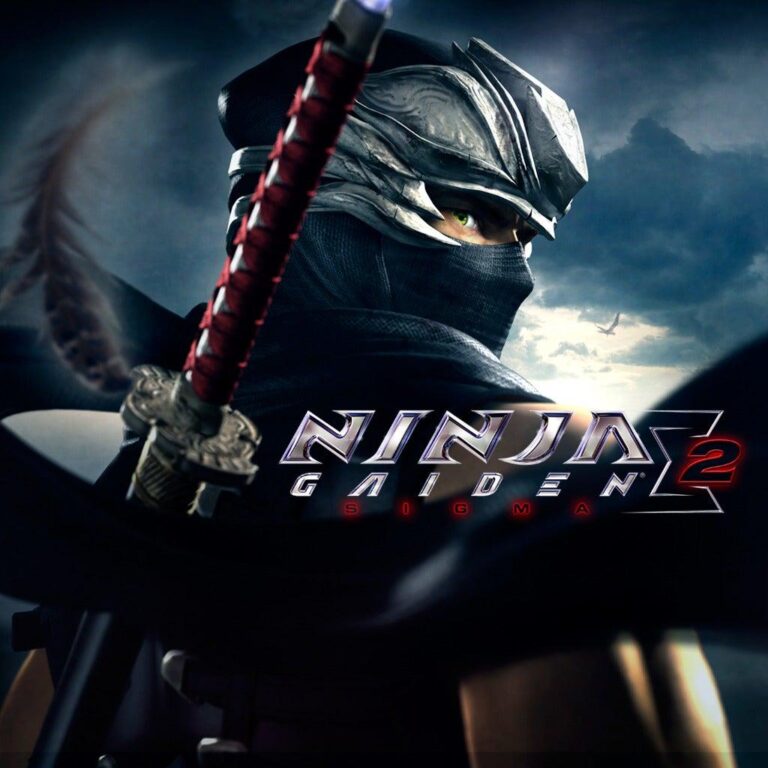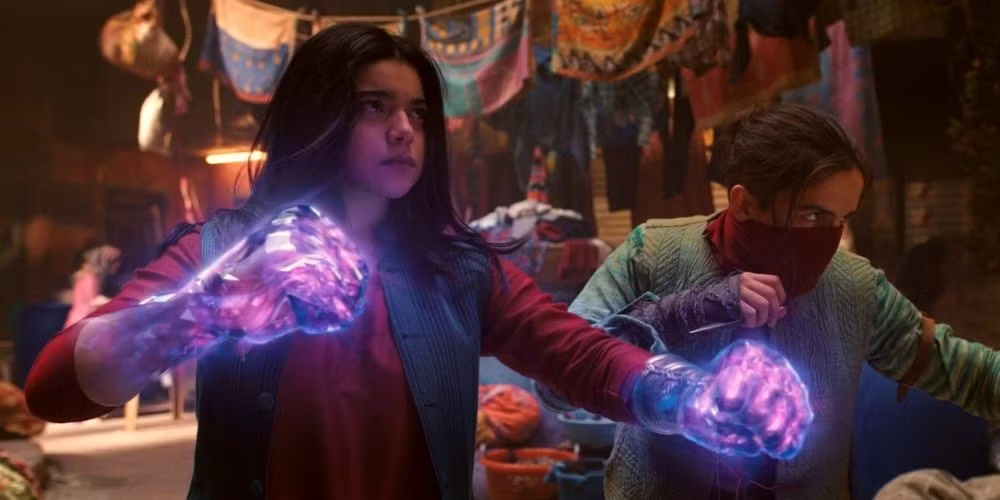
“From Speedsters to Legends: A Ranking of the Greatest Superhero Series on the CW”2025
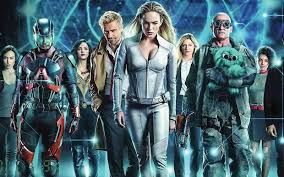
Nobody could have foreseen when Arrow debuted in 2012 that it would inspire a fervent fan base, a vast superhero universe spanning more than ten years, numerous series, and significant crossovers. Once known more for its supernatural thrillers and teen dramas, The CW has unexpectedly become a haven for masks, capes, and multiversal mayhem.
With each having its own unique flavor and fan base, the Arrowverse (as it became known) expanded over time to include vigilantes, time travelers, alien refugees, and speedsters. But out of all the shows, which ones really took off—and which ones faltered?
Let’s suit up and dive into a definitive ranking of the greatest superhero series on The CW, from the merely fun to the absolutely iconic.
NEW WEEK
1. Criasis on Infinite Earths Crossover Event (2019–2020)
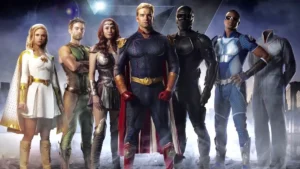
Alright listen up—the five-part Crisis on Infinite Earths event was the ultimate culmination of everything that the Arrowverse had developed over the course of eight years, even though it wasn’t a full show. Arrow The Flash, Supergirl, Batwoman, Legends of Tomorrow, and even Smallville, Lucifer, Titans, and the DCEU Flash were all brought together in this crossover. It was nerdy, emotional, and ambitious in just the right ways.
Highlight: Oliver Queen’s sacrifice and metamorphosis into the Spectre served as a fitting farewell to the protagonist who initiated everything.
2. Superman & Lois (2021–2024)
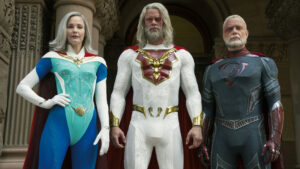
A mature cinematic approach that struck a balance between heartfelt family drama and superhero spectacle was something this show brought to the CW superhero table that was refreshingly different. The show, which focused on Clark and Lois’s parenting of their teenage sons in Smallville, provided a nuanced look at parenthood in a world of superpowers, as well as stunning visuals and realistic storytelling. Compared to most Arrowverse counterparts, the tone was more consistent, the stakes were more personal, and the writing was tighter.
Highlight: Tyler Hoechlin and Elizabeth Tulloch’s chemistry gave us arguably the most grounded portrayal of the iconic couple in decades.
3. Arrow (2012–2020)
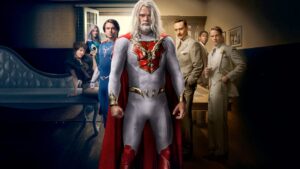
Drawing inspiration from Batman Begins Arrow anchored its protagonist in the shadows of Star(ling) City making it dark melancholic and unapologetically gritty. Oliver Queen played by Stephen Amell was a complicated vigilante who struggled with trauma guilt and atonement. Character drama mystery and action were all expertly balanced in the first two seasons of the show. Even though the quality of subsequent seasons fluctuated, its legacy is indisputable.
Highlight: The Deathstroke arc in Season 2, which is arguably the best of the series, featured well-choreographed action and high emotional stakes.
4. The Flash (2014–2023)

The Flash gave us Barry Allen’s transformation from clumsy CSI to the Scarlet Speedster making it arguably the most approachable and conventionally “superhero-y” show in the Arrowverse. For the first few seasons the show offered high-stakes action and emotional resonance and Grant Gustin embodied charm and pathos in the role. Its core cast and legacy helped it stay a fan favorite even though it later suffered from “speedster villain fatigue” and some extremely complicated story arcs.
Highlight: One of the tightest and most emotionally impactful plotlines in all of CW superhero TV is still the Reverse-Flash arc from Season 1.
5. DC’s Legends of Tomorrow (2016–2022)
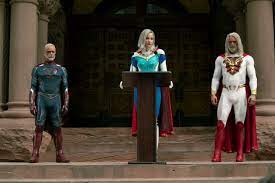
Legends of Tomorrow found its footing by accepting the strange even though no one anticipated this time-traveling spin-off to last more than a season or two. A disorganized humorous and unexpectedly touching journey through myth and history was what began as a mismatched group of supporting Arrowverse characters. Legends’ self-awareness and wild inventiveness won over fans despite its occasionally clumsy plot.
Highlight: The puppets, sentient AI ships, musical episodes, and frequent breaking of the fourth wall were all CW gold. The show made sure we had a good time.
6. Supergirl (2015–2021)
Supergirl which began on CBS before moving to The CWbrought back the superhero genre’s sense of earnest optimism. As Kara Danvers Melissa Benoist excelled displaying both sensitivity and strength. Though its tone was occasionally confused by sporadic soap opera storytelling and shifting antagonists, the show thrived on endearing themes of identity, acceptance, and hope.
Highlight: Fans enjoyed some delightful fan-service moments when the Legion of Super-Heroes and The Flash crossover were introduced
7. Black Lightning (2018–2021)
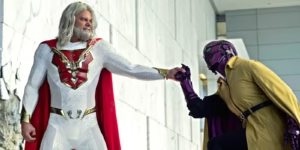
Black Lightning at least until Crisis on Infinite Earths merged the multiverse existed in a distinct continuity from its Arrowverse cousins. A compelling lead with a strong moral compass and a potent family dynamic was Jefferson Pierce a former superhero who became a principal. The show is among the most realistic and socially conscious because it didn’t hesitate to address difficult social issues like institutional racism police brutality and generational trauma.
Highlight: The superhero trio consisting of a father and daughter was new and full of emotion. China and Thunder played by Nafessa Williams One notable addition to the superhero canon was Anne McClain as Lightning.
8. Batwoman (2019–2022)
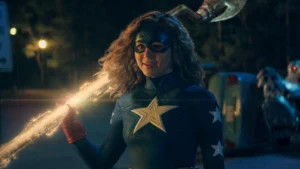
On paper Batwoman had everything it needed: a rich Gotham setting a nuanced legacy character and the opportunity to examine significant LGBTQ+ issues through Kate Kane the main character. Although Ruby Rose’s first appearance added some gritty energythere was a creative void left by her unannounced exit following Season 1. The show never quite found its footing in the wider Arrowverse landscape despite Javicia Leslie’s excellent replacement as Ryan Wilder who brought heart and a fresh viewpoint.
Highlight: Despite its storytelling flaws the show’s dedication to diverse representation and examining systemic issues in Gotham was audacious and significant.
Final Thoughts: Why The CW’s Superhero Era Mattered
Whatever you think of the CW’s superhero shows’ limited budget corny dialogue or sporadic plot holes they produced something unique: a cohesiv character-driven superhero universe on network television. It created a fervent devoted fan base allowed underdog heroes to shineand embraced diversity in ways that many blockbusters still find difficult.
One thing is clear as the Arrowverse disappears into the past and DC prepares for new film universes: these series were important. They restored our faith in heroes, even those with dubious fashion choices and multiversal duplicates, and made us laugh, cry, and cheer.
